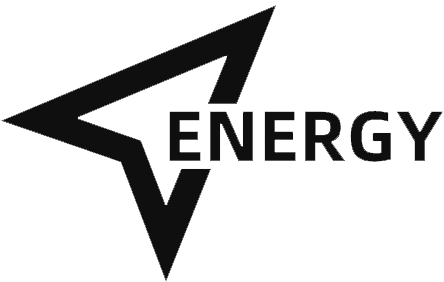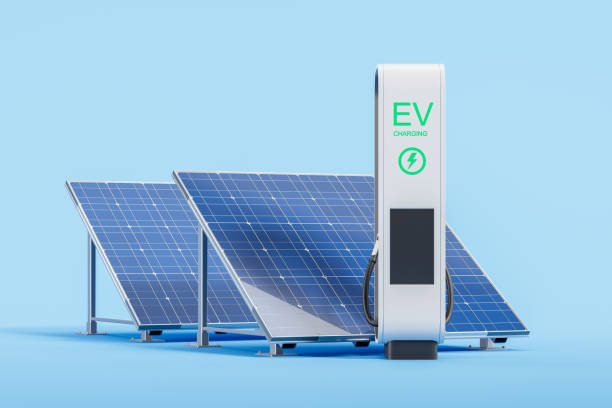As the world is heading towards renewable energy at a rapid speed, Bahrain is becoming an impending leader of the energy revolution in the Gulf. With an emphasis on strategic intent to pursue energy-diversification as well as lowering carbon emissions, the government of Bahrain has placed making advanced smart energy storage facilities as its top priority. In 2024, policy incentive and innovation reshape Bahrain’s energy industry. This article looks into the current scenario of Bahrain’s energy storage sector, researches the principal policy directions, explains the benefits and potentialities of implementing solutions like Solar PV containers, intelligent solar inverters, and lithium battery systems.
The Emerging Role of Energy Storage in Bahrain
It is a future Bahrain that is green with investments in renewable energy schemes being encouraged and where the prime concern of the energy storage facility is to make the schemes a success. The Bahrain Energy Storage systems not only have to balance supply and demand kept in equilibrium but also have to make unreliable renewable energy sources supply stable power to the grid.
- Grid Stabilization: Electricity can be supplied to the grid during peak usage times using energy storage systems, which are harvested during peak usage times, and stabilize the grid.
- More Renewables Integration: Storage systems can allow more integration of sunlight-generate power generated by solar panels, with more integration into the national grid.
- Green Gain: With less consumption of fossil fuels, energy storage strategies lower greenhouse gases, which will be one of the factors contributing to global sustainability.
Trends in Public Policy That Are Impacting the Industry
Bahrain has rolled out a chain of policy steps to fuel the installation of energy storage systems at a rapid rate. The policies attract investors as well as render projects feasible and compatible with the energy plans of the nation.
Policy Steps of High Significance:
- Renewable Energy Incentives: Renewable energy projects and energy storage facilities are exempted from taxes by the government and subsidized. The incentives reduce the costs and increase market confidence.
- Regulatory Reforms: Better, simplified regulations enabled smoother permit release for energy storage projects and faster feed-in into the national grid.
- Public-Private Partnerships: Private-public partnerships are also playing a crucial role as far as financing and distribution of new energy storage technology, i.e., Solar PV container installation and high-efficiency solar inverters, is concerned.
The above policy initiatives are driving Bahrain’s energy storage sector in short-term growth and long-term industry expansion.
Technological Advances in Energy Storage
Clean energy technology innovation leadership powers Bahrain’s energy storage industry growth. Various leading-edge technologies are leading the charge:
Solar PV Container Systems
Solar PV Container systems could be a game-changer for small-scale, large-scale energy storage. The container modules integrate solar panels, inverters, and battery storage into an easy-to-conceptualize, one-box module that is fast and simple to install and scale.
- Modular Construction: Modular nature of the system allows for simple expansion based on energy needs.
- Rapid Installation: Pre-fabricated units are quicker to install and can be moved easily if required.
- Maximum Efficiency: Solar panel and energy storage utilization ensures that such systems receive and utilize maximum energy as well as deliver maximum system performance.
Lithium batteries are the peak of current energy storage technology with huge energy density and greater cycle life.
- High Energy Density: Lithium batteries have greater energy per volume, which is suitable for application requirements of containers.
- Fast Charging: They have high rate charge and discharge, as long as stored energy is available to utilize at any given time when necessary.
- Longevity and Reliability: Next-generation lithium battery technology is maintenance-free and provides long-term stable performance.
Solar Inverters and How They Function
Solar inverters convert DC solar panel power to AC power that is usable by the grid. Contemporary inverters not only enhance efficiency but also provide real-time monitoring and system diagnostics.
- Conversion Efficiency: Contemporary inverters maximize the process of conversion, wasting none of it.
- Monitoring Capabilities: Embedded smart features assist in ongoing monitoring of system performance.
- Seamless Integration: Inverters allow seamless coexistence among the various components—solar panels, batteries, and control systems.
Bahrain Energy Storage Advantages and Future Potential
Investment in new energy storage facilities has a number of benefits to Bahrain’s renewable energy sector:
Principal Most Important Advantages
- Enhanced Grid Stability: Energy storage facilities enable grid stability because they offer the same amount of power even during peak power hours or when the renewable power is unreliable.
- Reduced Costs: Reduced reliance on conventional sources of energy lowers the cost of energy, and hence they are more affordable for industries and individuals.
- Environmentally Friendly: A shift to renewable energy storage guarantees lower carbon emission and a greener, cleaner planet.
- Enhanced Energy Security: Resilient infrastructure storage provides energy autonomy through the storage of renewable energy in terms of domestic production.
Future Outlook:
- Market Growth: Greater investment and supportive policies will see the Bahrain energy storage market grow exponentially over the next few years.
- Technology Advances: Greater innovation in renewable technology, e.g., Solar PV container units and improved lithium batteries, will increase efficiency and cost savings further.
- Policy Evolution: Further regulatory reform and government backing will continue to promote a more supportive environment for the installation of next-generation energy storage systems.
- Competitive Globalization: Bahrain is poised to be a regional leader in solar energy technology with export and foreign partnership potential.
Overcoming Market Challenges
Despite favorable trends, the Bahrain energy storage market is faced with a number of challenges:
- High Initial Costs: Solar PV boxes and other newly established storage devices are costly to buy outright, which may be discouraging for mass adaptation.
- Technological Advance: A technological disadvantage is smooth integration between various components—lithium batteries, solar panels, and solar inverters.
- Maintenance and Longevity: Regular maintenance and effective monitoring of the system at periodic intervals are required to attain maximum efficiency and life for energy storage systems.
- Market Uncertainty: Volatility of technology price and shifting regimes of regulation can then affect the project’s viability.
Overcoming such challenges with government backing, strategic alliances, and continuous technological innovations will be crucially vital in realizing the promise of the renewable energy industry in Bahrain.
Best Practices for Energy Storage Deployment
In the quest for best return on storage and harnessing of renewables, industry stakeholders are adopting best practices in system design, installation, and operation.
1. System Design Optimization
- Customization: Design energy storage solutions in harmony with local energy consumption and production patterns.
- Modular Architecture: Utilize versatile, expandable Solar PV container modules.
- Compatibility: Make solar panels, lithium batteries, and solar inverters compatible with each other.
2. Effective Installation and Maintenance
- Professional Installation: Hire skilled technicians to install and configure systems as quickly as possible.
- Check-ups: Periodically inspect and keep so that one can detect trouble in the early stages.
- Live Monitoring: Use advanced energy management systems (EMS) to track live data and process optimization.
3. Strategic Association and Investment
- Partnering Suppliers: Keep close association with good partners who can supply best-class components.
- Government Incentives: Leverage available policy incentives and subsidies so as to subsidize the large initial investment.
- Capacity Building: Invest in training and development programs to improve local technical competence.
4. Future-Oriented Innovation
- R&D Investment: Invest in R&D to facilitate ongoing innovation in energy storage technology.
- Smart Integration: Embrace emerging technologies such as AI and IoT for intelligent energy management.
- Sustainable Practices: Supply green material and practices for long-term sustainability.
By implementing such best practices, Bahrain will be able to successfully counter market threats and construct a robust, effective energy future.

